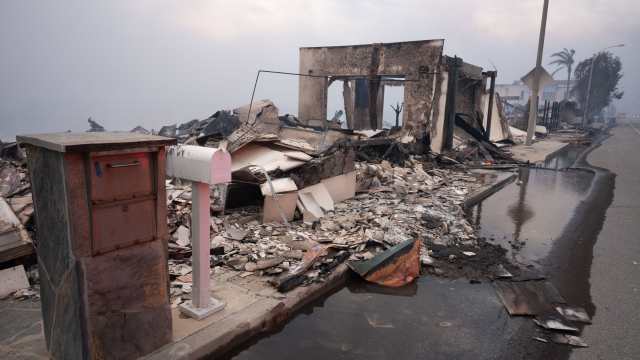In a recent statement that has sparked widespread debate, former NASCAR driver Danica Patrick has pointed fingers at California’s management practices as the root cause of the state’s persistent wildfire crises. Her remarks, delivered via a social media post, have ignited both support and backlash, reflecting the deep divisions surrounding the issue of wildfire prevention and management in the Golden State.

Danica Patrick’s Controversial Statement
Patrick, who has never shied away from expressing her opinions on social and political matters, took to her platform to voice her concerns. “The way California is managed is the real reason these wildfires keep happening,” she wrote. “It’s not just about climate change—it’s poor forest management, bad policies, and a lack of accountability.”
Her statement comes as California battles yet another season of devastating wildfires, which have claimed lives, destroyed properties, and displaced thousands. While many attribute the fires to climate change, Patrick’s comments highlight a growing discourse around the state’s preparedness and resource allocation.

The Role of Forest Management
Critics of California’s wildfire policies often cite forest management as a key factor. Mismanagement of forested areas, including insufficient clearing of dry vegetation and delayed implementation of controlled burns, has long been a point of contention. Patrick’s remarks align with arguments from some experts who believe that better land management could significantly reduce the frequency and intensity of wildfires.
However, it’s important to note that over 57% of California’s forests are federally owned, leaving much of the responsibility in the hands of the federal government. This nuance has been a central point in the debate, with state and federal authorities often pointing fingers at one another.
Public Reaction: Divided Opinions
Patrick’s statement has drawn mixed reactions. Many of her supporters praised her for speaking out, arguing that the state’s leadership has failed to address the root causes of the wildfire crisis.
“Finally, someone who’s not afraid to tell the truth! California needs to stop blaming everything on climate change and start fixing their policies,” one user commented on her post.

On the other hand, critics accused Patrick of oversimplifying a complex issue. “Wildfires are a global problem, not just a California problem. Blaming management ignores the reality of climate change and the unprecedented weather conditions we’re facing,” another commenter argued.
California’s Wildfire Crisis: A Multifaceted Problem
The wildfire crisis in California is undeniably multifaceted. While climate change has led to hotter, drier conditions that exacerbate fire risks, human factors such as urban expansion, power line failures, and land mismanagement also play significant roles.
Governor Gavin Newsom has defended the state’s efforts, pointing to increased funding for wildfire prevention and response, as well as the implementation of new policies aimed at reducing fire risks. However, critics argue that these measures are insufficient and often come too late to address the scale of the problem.

A Broader Conversation
Patrick’s comments have reignited a broader conversation about accountability and the intersection of politics, policy, and environmental stewardship. Her perspective, while controversial, echoes sentiments from other public figures who have questioned California’s approach to wildfire management.
The debate also raises questions about the role of individuals and communities in mitigating wildfire risks. From adopting fire-resistant building materials to creating defensible spaces around homes, local actions can complement broader policy measures.
Conclusion
Danica Patrick’s bold statement has added fuel to an already heated discussion about California’s wildfire crisis. Whether one agrees with her assessment or not, her comments highlight the urgency of finding effective solutions to a problem that continues to devastate the state year after year.
As California faces the dual challenges of climate change and governance, the path forward will require collaboration, innovation, and a willingness to confront uncomfortable truths. Whether Patrick’s critique will spur meaningful action or simply add to the noise remains to be seen.







